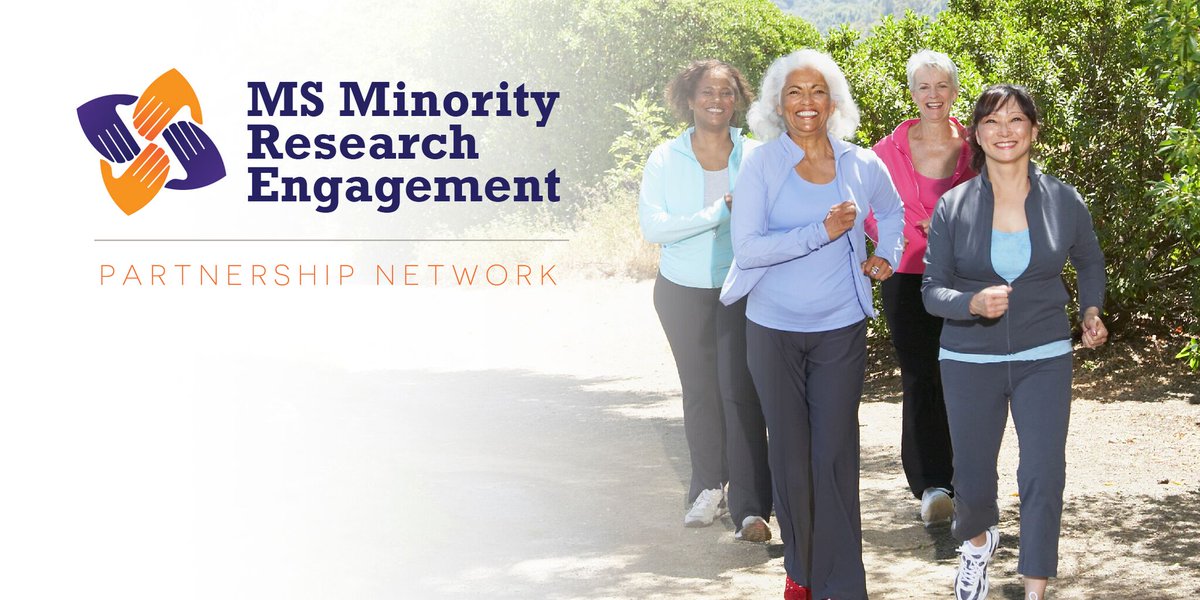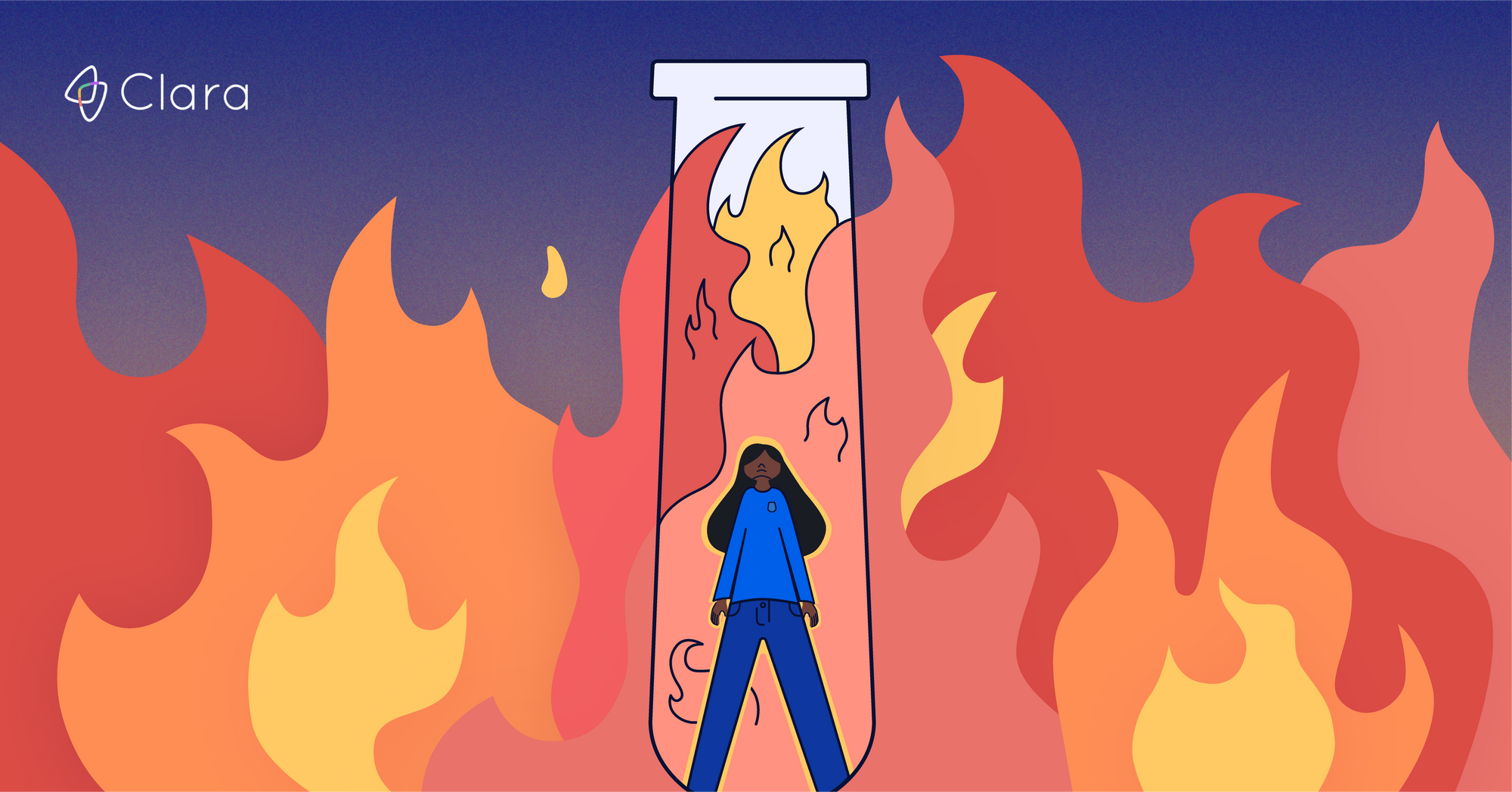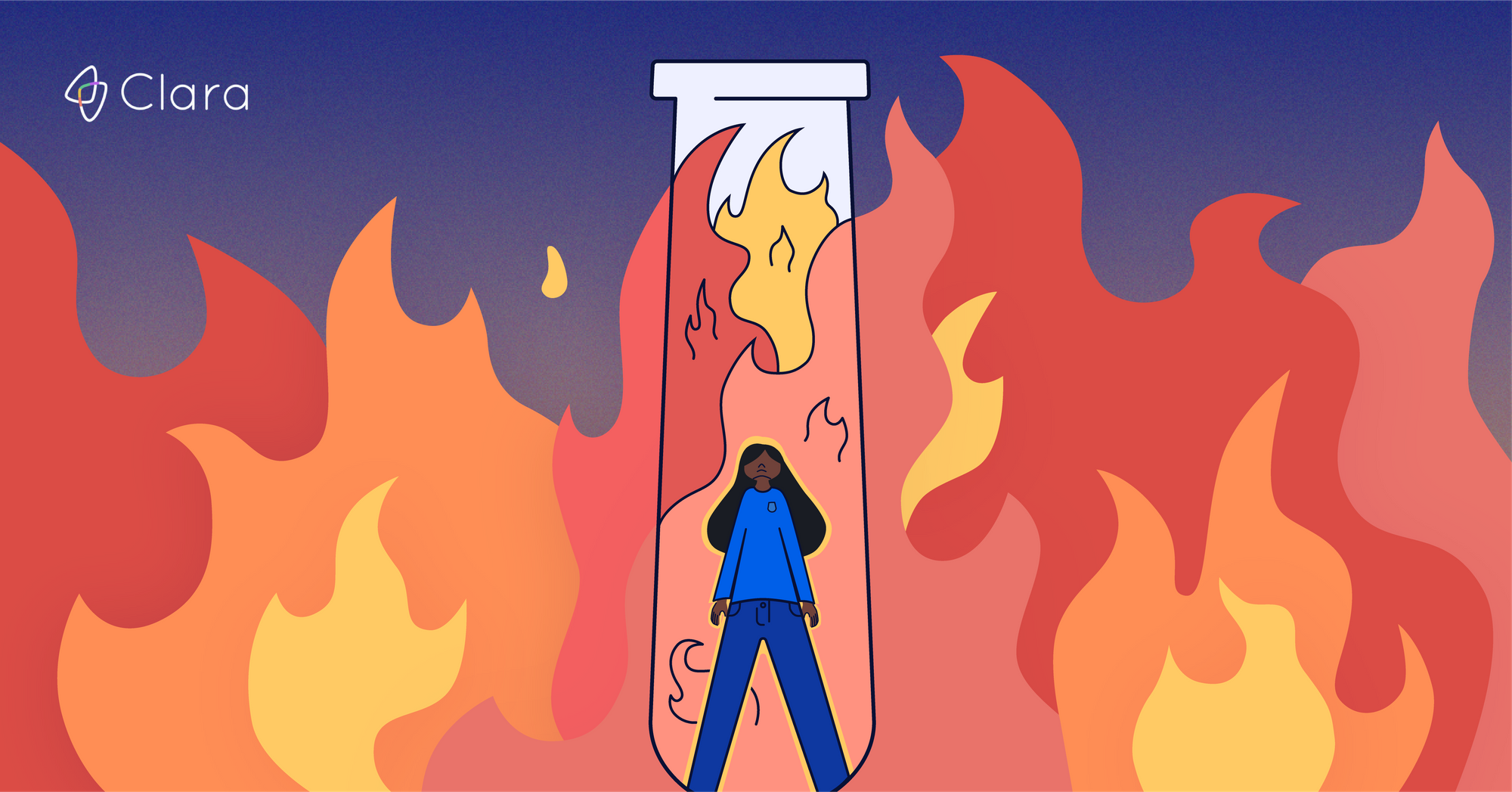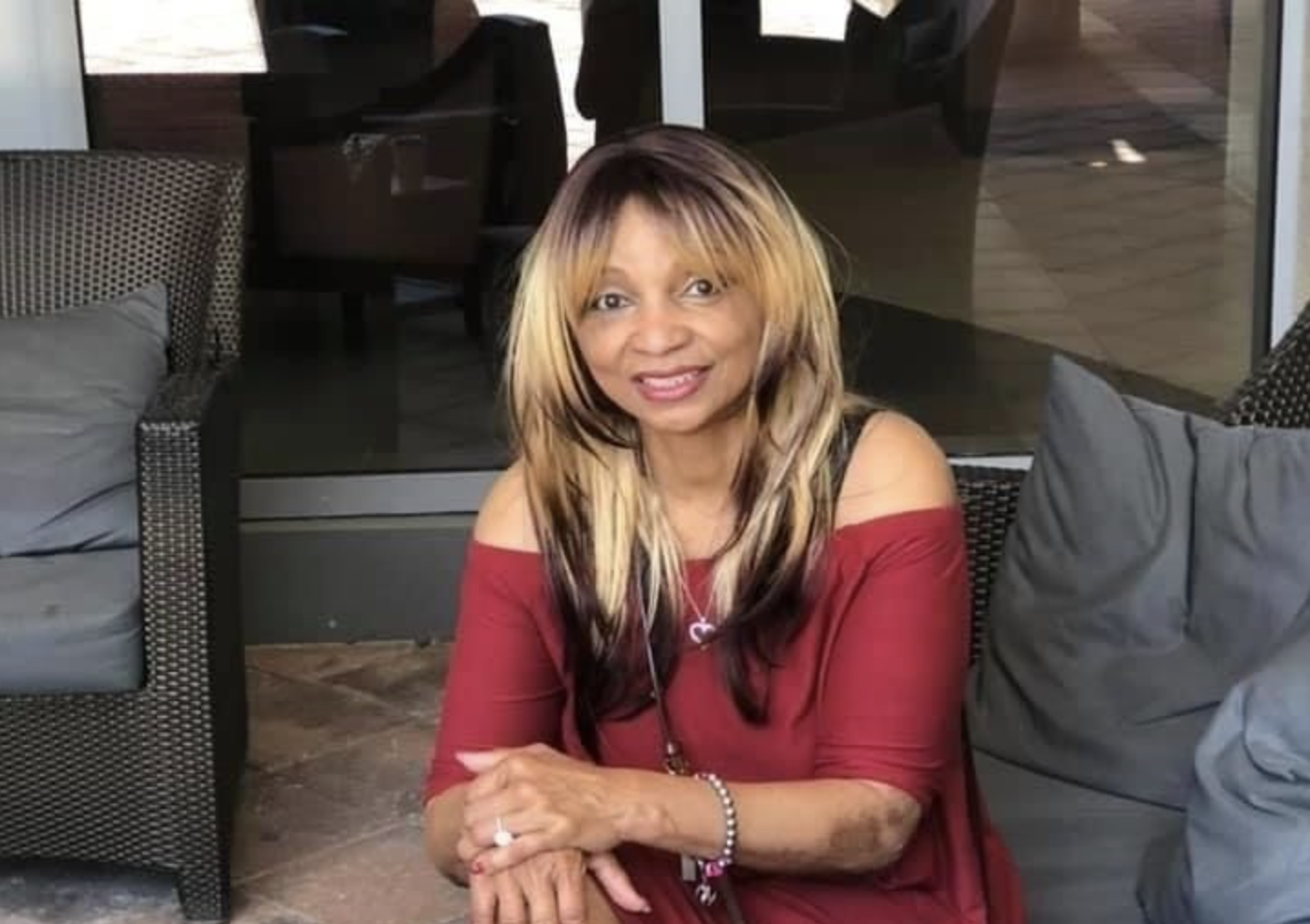Hello everyone, and welcome to The Patients Have Power podcast. Our latest Patients Have Power episode called "Representation Matters: Increasing Inclusivity in Research". (You can subscribe to the podcast at Apple Podcasts, or listen to it with the media player above).
I am elated today that we have three amazing women with us who are going to chat with us about their work in the MS space. They're doing something really interesting that we haven't necessarily seen before, and we haven't had the chance to talk about much on our podcast.
So, I'm really excited to be tackling the topic, and they're all coming from the Accelerated Cure Project for MS, and we're going to talk specifically, today, about the MS Minority Research Engagement Partnership Network. That's a mouthful, ladies.
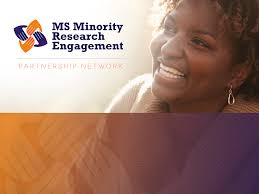
Lilly Stairs: So, with us on the podcast today, we have Hollie, who is the VP of Scientific Operations at the Accelerated Cure Project for MS. And we also have Anita and Shawn, who are both patient advocates, but also advisors to the project. And so, I am going to take a moment to let them introduce themselves, tell you a little bit about them and what brought them to this point to be involved in this network. So, Hollie, I'd love to kick it off with you.
Hollie Schmidt: Great. Yes. Thank you. So, I am with the Accelerated Cure Project for MS. This is a non-profit organization, founded ... Oh, about 16 years ago. And I'm the Vice President of Scientific Operations, so some of the things that we do or have done in the past include building a research network that focused on patient-centered research, called IConquerMS. We also have a repository of blood samples and associated data that we provide to researchers who are looking at some different aspects of MS, like the causes, or disease mechanisms, or potential treatments.
Hollie Schmidt: And I am the project leader of the MS minority Research Engagement Partnership Network, which we founded because in our own activities, we realized that we did not have very balanced representation of our research participants both IConquerMS and the repository across different racial and ethnic groups. And so, we wanted to do something about that so that we made sure that the research was representative of all groups with MS and that the benefits of research would apply equally to all groups. So, that's why we decided to launch this initiative.
Lilly Stairs: I love that. And I think it's something that so many different clinical trials and patient advocacy groups can learn from, because really, across the board, not even just in MS, diversity in clinical trials is a major pain point in the industry. And so, I'm super excited to hear more about what you guys are doing. But first, Anita and Shawn, I would love for you to introduce yourselves. And Anita, I'm gonna pick on you first, simply because you're first name starts with an A, and it's the beginning of the alphabet.
Anita Williams: That's a change. My last name is Williams, and I'm always last, so ...
Anita Williams: I got involved with the Accelerated Cure Project ... I am an MS patient...and what I really love about the organization we're involved in is not just the patient-centered nature, but the emphasis on inclusivity. From the moment that I was invited to join the organization, everything was about, how can we bring everybody to the table, not taking for granted that things are the way they are, and they're gonna stay that way.
Anita Williams: And I would say that my advocacy journey really did start with IConquerMS, the Accelerated Cure Project. And it's because of people like Shawn and Hollie, who inspire me on a daily basis to contribute more. They share themselves and their own knowledge and experience to be openly, to guide you in that. And I'm still very much in the infancy, about two years. But they have been so generous with that. That's what's inspired me to continue with the organization and also participate in the Representation Network. And it's the people. And again, Shawn and Hollie have been enormously, enormously influential in my growth and understanding of my role as an advocate.
Lilly Stairs: What a beautiful sentiment. Thank you for sharing. Thank you for sharing. And Shawn, would you like to take it away? Last, but certainly not least?
Shawn Feliciano: Sure, thank you. Thank you for having us on your show. I was diagnosed with relapsing remitting MS in 2009, and really didn't know very much about MS. Probably one of the reasons that I got involved with Hollie and IConquerMS is because I wanted to know more about how MS affected minorities, and I went onto the website, and then Hollie reached out to me, and we just had this amazing conversation. I remember I was in Ohio sitting at the Trader Joe's, and we were just talking, and it was just ... Knowing it was just such an impactful experience for me.
Shawn Feliciano: And so, I was invited to one of their symposium, where I had met Anita, and we just ... The energy around the symposium to find out about minorities, and research, and why minorities don't get more involved in research was just amazing for me. And Anita's energy, and everything that she brought to the table ... It was a really, really great experience.
Lilly Stairs: Wow! I love how you all speak so highly of each other. It sounds like you must be a fabulous team.
Hollie Schmidt: Yes.
Shawn Feliciano: It is. It definitely is. (Laughter among group)
Lilly Stairs: We'll clue in our listeners. Before the call, everybody ... They were talking about how they didn't wanna giggle too much throughout the podcast to make sure that we could hear everything they're saying. It sounds like they're a very tight-knit group, which is awesome.
Lilly Stairs: So, let's jump in then, and let's talk about this initiative and what you're working on. Can you tell me a little bit more about the network itself, why it was started, and what some of the key goals of the program are?
Hollie Schmidt: I'll take the first shot at this. So, like I said, we're a non-profit, we're focused on research. And so, we've done a number of things in the MS research area, and we did notice this discrepancy in terms of who was involved in our studies, who is involved in studies in general. It's not just us. It's a phenomenon that happens with other MS research and research all over in all kinds of health conditions. You know? Why is there this imbalance?
Hollie Schmidt: And so, we thought, "Well, there's gotta be some reasons why this is ... But it doesn't mean that those reasons have to control things into the future. We can probably find some solutions that result in a more balanced participation in studies." How can we do that? We're a very small organization. We don't have the resources, or the people, the expertise to tackle this big of a problem on our own. So, we thought, "Let's build a partnership network with different stakeholders that come at it from different points of view and have different stages of experience so that we can pool what we know, we can pool what we have, and work on this together."
Hollie Schmidt: So, we ... I found Shawn and Anita. I said, "Would you guys like to help out with this?" And they said, "Sure." We thought about, well, what could we do? How should we go about this? We decided to ... And we also worked with people from our communication firm, which is Feinstein Kean who has a lot of experience with minority health. Decided to apply for an engagement award from PCORI which is the Patient-Centered Outcomes Research Institute, and they provide funding for projects like this that are aimed at getting different groups involved in research.
Hollie Schmidt:
And the approach we took was to build a network that included different stakeholders to first, understand the factors that led to disparate participation in research, and then, to try out some solutions to try to address this. And it's been a two-year project, and we've accomplished a number of things, and I think there's still a lot more we can do, and we're looking forward to continuing together.
Lilly Stairs: That was a perfect overview. So, I'm gonna continue ... Anita and Shawn, did you have anything to add, or should we keep on rocking with some more questions?
Shawn Feliciano: The only thing that I would add to that would be that it's so exciting, because there are so many people that are involved. It's just ... There are clinicians, researchers, there are patient advocates ... So, besides Anita and myself ... So, it's really just an all-encompassing group. It makes it that much more worthwhile, belonging to a group like that.
Lilly Stairs: Okay. So, why do you think that minority populations are underrepresented in research?
Anita Williams: I would say one of the major reasons is the lack of diversity in the population of people who are formulating and conducting clinical trials. If you are not around a diverse, population, you are not necessarily going to be thinking about that when you're creating a trial. And it's not necessarily out of any sort of purpose. It's just simply, often times, the needs of African Americans or Latinos simply are not on the radar.
And I believe that once the population becomes more diverse, of clinicians, researchers, that it will help a great deal, because you will have people that are in that marginalized population begin to be represented from the inside as well as from the advocacy point.
Lilly Stairs: Hmm. That's a really interesting point, and something I haven't heard many people bring up when this conversation comes up in diversity in clinical trials, and I think it makes just so much sense, right? And so, I'm glad that you're bringing this up, so that we can get the word out about some of these different pieces of the puzzle, and perhaps there are other folks who are in industry who can help get involved in pushing for a more diverse workforce. And how do we begin doing that? Is is that we're going into schools and talking to diverse groups of students from a young age to get them excited about being a doctor, or working in research, or working in industry? And so, I think there's probably a lot of different ways to begin to tackle that problem. Are there any other points or things that you've learned working on this project that you feel could be contributing to minorities being underrepresented?
Shawn Feliciano: This is Shawn. I think what Anita said is absolutely correct. Science and researchers have done things for so many years in a certain way that they've just continued doing that. Now, with a lot of the demographics changing and the world getting smaller, I think that we will start educating, whether it's via the internet or schools, but I definitely think that we do have to start with the younger generation, because that's one of the ways that we're actually going to be able to seminate the information out there, that we really do have to diversify the test pool population.
Hollie Schmidt: We did a survey of people with MS to try to understand how people think about research, their willingness to participate, how they would evaluate a particular research study if they got invited to join. And we looked at, were there any differences across racial and ethnic groups as well, because we wanted to understand from the patient point-of-view also. What's that perspective?
Hollie Schmidt: And we found that there was ... In general, at least from the people that participated in the survey, across all groups, there was a lot of enthusiasm for research. There was a good understanding of research as beneficial. It has led to new breakthroughs for people with MS. So, that was all good and reassuring.
We found out that people aren't always hearing about how they can participate in research.They would love to talk about research opportunities with their doctors, or nurses, or other clinicians, but this conversation isn't always happening, and that might be driven because they may be getting their healthcare at a place that doesn't do research, or the time allotted to the clinic visit is just too short, and you have to cover so many other things that you never get down to the research conversation.
Lilly Stairs: Right. Oh, we talk about that all the time actually. At Clara, we're always talking about how physicians ... It's like you have this ten minutes or less window to be seeing chronic patients. Often, you're double, triple-booked, and there's already a laundry list of things that you need to talk about, and clinical trials feels like something extra, right? That you would throw in at the end. And I think doctors are even pressed, never mind just in the appointments, but are struggling to keep up with the current research that's happening, because what's exciting is that there is so much of it, but they already have so much on their plate and many administrative burdens. So, to keep track of all of those studies is difficult for them too.
Hollie Schmidt: Mm-hmm (affirmative). Yep. We found, also, that there were some concerns about research. Again, these concerns came up across all the different groups, but they were perhaps more pronounced in racial and ethnic minorities. So, concerns about being taken advantage of, or concerns about risks to health insurance or your job ... But again, even people who were concerned were overall willing to participate in research, so it may be just that they want these concerns to be addressed. You know? They're not showstoppers, but they would like to be reassured that they're being included as partners and that their welfare is being looked after by the researchers.
Lilly Stairs: Hmm, okay. Awesome. And so, not a guinea pig. Nobody wants to be a guinea pig, and that's something we're always trying to de-mystify.
Hollie Schmidt: Yep.
Lilly Stairs: So, okay. This is what you've identified as being some of the barriers. What are you doing in this research network? How are you working to fix it?
Shawn Feliciano: I think one of the things that we've tried to do is to really ... In the research study, we've tried to really explain what our goal is, and to try to de-mystify a little bit, to try to put the person who's going to participate in the research ... To have them really feel comfortable with what they're doing, and to be open. Definitely a lot of transparency. And I do think the results were very good as far as really getting the information about why people don't wanna participate in research. So, I think that's a little bit of how we've addressed it.
Anita Williams: I think additionally, one of the strengths is that we've looked at it from multiple fronts. We didn't look at it as just a patient issue of not knowing. We didn't just look at it as a researcher issue. We looked at all fronts, whether it's clinicians, researchers, healthcare providers. We brought them all into the net, so that it didn't just become a burden on one particular population to fix a problem, but to see that it's a 360-degree issue with multiple factors. And by bringing everyone together, these diverse populations, we're able to get to a different area. So, even if we don't have patients to inform, we might have a clinician who knows, who can then try to bring in patients or incorporating other healthcare providers.
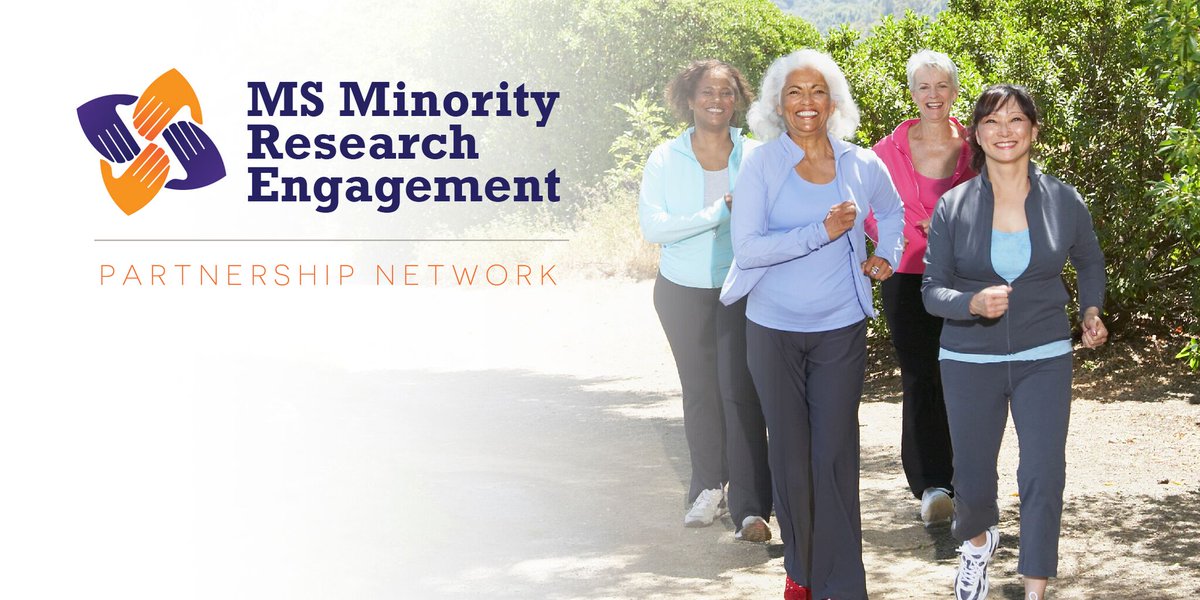
Anita Williams: So, by spreading out the work ... In doing it, I think we're able to really grab a lot of people in a wider net, as opposed to simply trying to target one section or another.
Hollie Schmidt: Right. And we're trying to disseminate what we've learned about the barriers to participation, as well as facilitators. You know? There are things that encourage people to participate as well, like a promise that the results will be shared after the study is done, and that is, I think, increasingly being done, but not always.
Hollie Schmidt: So, we're trying to share that with the different communities so that it's not just our knowledge. It's everybody's knowledge. We've produced them toolkits, which include information, and links to resources, and explanations of things that ... And one is for community organizations, one is for clinicians, and one is for researchers. So, everybody who's playing a role has the background information and some knowledge that can empower them to understand what the problem is and to help be part of the solution.
Lilly Stairs: Perfect! I love that. Love toolkits, and love that you're working across all stakeholders! And we'll be sure to link to all of those in the notes from this podcast so that people can get involved should they decide they want to.
Lilly Stairs: Now, what elements of the program do you feel have worked well thus far?
Shawn Feliciano: I would say it's the collaboration, and probably ... I think Anita was gonna say the same thing. Sorry, Anita.
Anita Williams: Stole my thunder.
Shawn Feliciano: Okay. I'll say one thing, and then you can feel in. But Shawn was saying earlier that we have all these different stakeholder types involved, and that has been such a source of power for us, because we all have different perspectives. We all have different ideas, and they've all come together so nicely, and we can build up what we all know and to create something bigger. Alright, Anita, you now. Fill in.
Anita Williams: Well, I think what worked well was collaboration! I know that Hollie, Shawn, and I ... That we're here, we're giggling, having fun, but it's great, because there was that synergy and connection between everyone that was in this group so that it was ... We're working together, but we're working together in a genuine partnership, and a sense of respect, and going for the same goal. And you don't always get that when you have a group of people, but also, we actually like each other as well and have a lot of fun, and I think that's also added to it, because again, it wasn't competitive. It was everyone in it together, working together.
Shawn Feliciano: And had a skin in the game.
Anita Williams: Yeah.
Shawn Feliciano: I think. And that was really important. A lot of times, we're all in diverse places. I'm in Arizona, Hollie's in Massachusetts, Anita's in Colorado, so ... And the other participants as well, a lot of them were in different states. Trying to get together, trying to not talk over each other, and it was just really ... It's something that we talked about afterwards. It's really amazing that this group of such diverse people ... I don't have a medical background. Anita does not have one either, and we just were able to understand the principles. And it wasn't like anything was dumbed down. It was just that everybody spoke so honestly, clearly. It's what really made things mesh quite well.
Lilly Stairs: Collaboration is key. That's what we're always saying at Clara as well, and I am really excited that you've been able to pull so many different stakeholders together, and that you've been able to work in such a synergistic way.
Lilly Stairs: Do you have any special moments in time throughout this collaboration that really stand out, where you felt like, "We are totally making an impact here. We're making a difference?"
Anita Williams: Honestly, the big one was when Hollie put a packet of our postcards in the mail, and -
Hollie Schmidt: Just say what the postcards are. (Laughter)
Anita Williams: No, no, no. And now I'm having an MS fog moment. I'm seeing it in my mind. I'm seeing a woman on the postcard...but getting those, and then Hollie can talk a little about what was on them, because my mind really did go into an MS fog, but getting that in the mail ... And I forgot what it was, and I got this heavy ... And I opened it, and it was like, "Oh my gosh! We did this! We did all this work," and everything, and just having this physical, physical thing in my hand, and it's just ... You know? It's like a little kid going, "I did this!"
Anita Williams: And that moment was the most amazing moment, because a lot of times you do work that people in committees, or summits, or conferences, and you do get things done, but a lot of it is talking, and the work gets done behind the scenes, but you don't always have the physical manifestation proof of, I know where this came from. I know where this line came from. I know where this point came from. I know why this says it, because I was involved with a group of wonderful people, and we together made something competent and amazing, and it was that moment. Opening that package and seeing it was like that moment of, "Wow! Hmm. Cool."
Hollie Schmidt: Yeah, the postcards were just our way of getting some tangible, like Anita said, some tangible thing out for a patient event or anybody, conferences, something that just in a really short, succinct way, described what we were doing. So, it had some visuals, and it had some information. It's really short, but I think it was to the point ... It said that minorities are underrepresented in research, and here are some resources where you can learn more. And then, on the back, it had the different organizations and people involved in the network listed. So, it was a cool little tool to get our message out there. So, I'm glad that that made a difference for Anita.
Lilly Stairs: Yeah! And it's nice to hear that, Anita, you were looking through it, you were able to say, "I know this. We were a part of why this happened," and it sounds like they used really what you had to say. And it's so great when we hear that patients are being incorporated and actually involved, and their opinions are being heard, and listened to, and action is being taken. Sometimes, I think that it can be frustrating for patients and advocates, because maybe they try to have their voice heard, but they feel like it's getting lost. And so, to have an organization like Accelerated Cure giving voice to what patients really care about is meaningful, and I think that it's something that's going to really resonate with our listeners, and yes, I'm excited about ways that they can get involved too.
Anita Williams:
That's one of the things that made not just this collaboration, but ACP and IConquer, different is that when this organization and the people talk about being patient-centered, about taking our opinions, our needs, our desires, and wants into consideration, it's not just talk. It's real, and I have been in so many different groups where people come together and say, "We wanna hear your voice. We wanna know what you think," and then, when you're done, your voice isn't there at all. And that's the difference with working with people here is that the patient's voice really is centered. It's not a line on a website or some marketing material. It's very, very real, and that's one of the things that I love about it, is that it feels that ... Not just me, but that other people participating are heard, genuinely heard.
Lilly Stairs: Hmm. And so, you've spent all of this time building out this collaboration, and you've produced some really incredible materials. It sounds like there is a way for patients, and industry, and clinicians to get involved. And Hollie, I believe you mentioned earlier, those are through some of the toolkits. Do you have any other ways that people can get involved? Any specific parts of the toolkit you wanna call out to make sure people go check it out?
Hollie Schmidt: Well, yeah. The toolkits, I think, just have some practical tips, so if you're a researcher that is aware of the need to have a more inclusive study cohort, there are some resources they can connect with, or things to pay attention to when they design their study or communicate about their study that they can put into action. Same thing with clinicians. You know? Here's how you can talk to your patients about research, here are some concerns you might have, and here are some answers to those concerns. So, definitely, everybody is encouraged. And those toolkits will be on our website very shortly. We're just putting the finishing touches on. Encourage to go and download them, but we're also still active as a network, and we're very open to people joining to work with us directly, to bring us ideas, to volunteer, or if they belong to an organization, to find out how that organization can connect. So, because that's ... What we're all about it bringing people onboard and leveraging what they know and what they have to offer. So, it's an open invitation to all who feel this is an important issue as well.
Lilly Stairs: Well, I hope that many of our listeners will get involved, whether that be folks from industry, or patients, and ... I'm sure that even for those of you who are listening that maybe aren't as connected to the MS community ... I would wager that probably a lot of that information you put together is going to benefit other therapeutic areas as well.
Hollie Schmidt: Definitely.
Lilly Stairs: Yeah. So, this has been an incredible chat, and I think it's going to be really great to bring voice to this topic and open up a discussion, especially in our podcast community, about diversity in clinical trials, especially in the MS space. But I have one final question that I would like all of you to answer, and that is, what does "Patients have Power," mean to you?
Shawn Feliciano: This is Shawn. I think, for me, it means that I have the ability to do something that I've wanted to do since I was diagnosed, and that's to encourage and empower others. Because whether it's MS or any other type of disease, it's so important for us to really know that we all have power within us to fight whatever disease that is, and a lot of times, we underestimate our strengths. But for me, it's to be able to know that I have the strength within me, but then also to be able to share that with others who are out there. And I just think that ...
Shawn Feliciano: And that term, "Patients have power," is that although I have multiple sclerosis, I'm not a victim, that I have some control, and I have the ability to surpass what it is. And so often, when people find out that you have a chronic illness, the first thing they really want to do ... And nicely, in a way, they wanna take away your power. They want to help make decisions for you, they want to help guide you, they wanna help so much that it almost puts you in a position where you don't feel like you have any say, but in having power, it means that I can take control, that I can be listened to, and that I don't have to be a person who is simply ... Really be a victim again, and I like the idea that I don't have to sit back, that I can participate, and I can do something.
Hollie Schmidt: I don't really have anything to add to that. So obviously, patients have power. They're very powerful people.
Lilly Stairs: Perfect. Well, thank you so much to all of you for joining us today. Thank you to all of our listeners who tuned in. We look forward to seeing you next week on the Patients Have Power podcast.
You can view and download the MS Minority Research Network Toolkits here:

